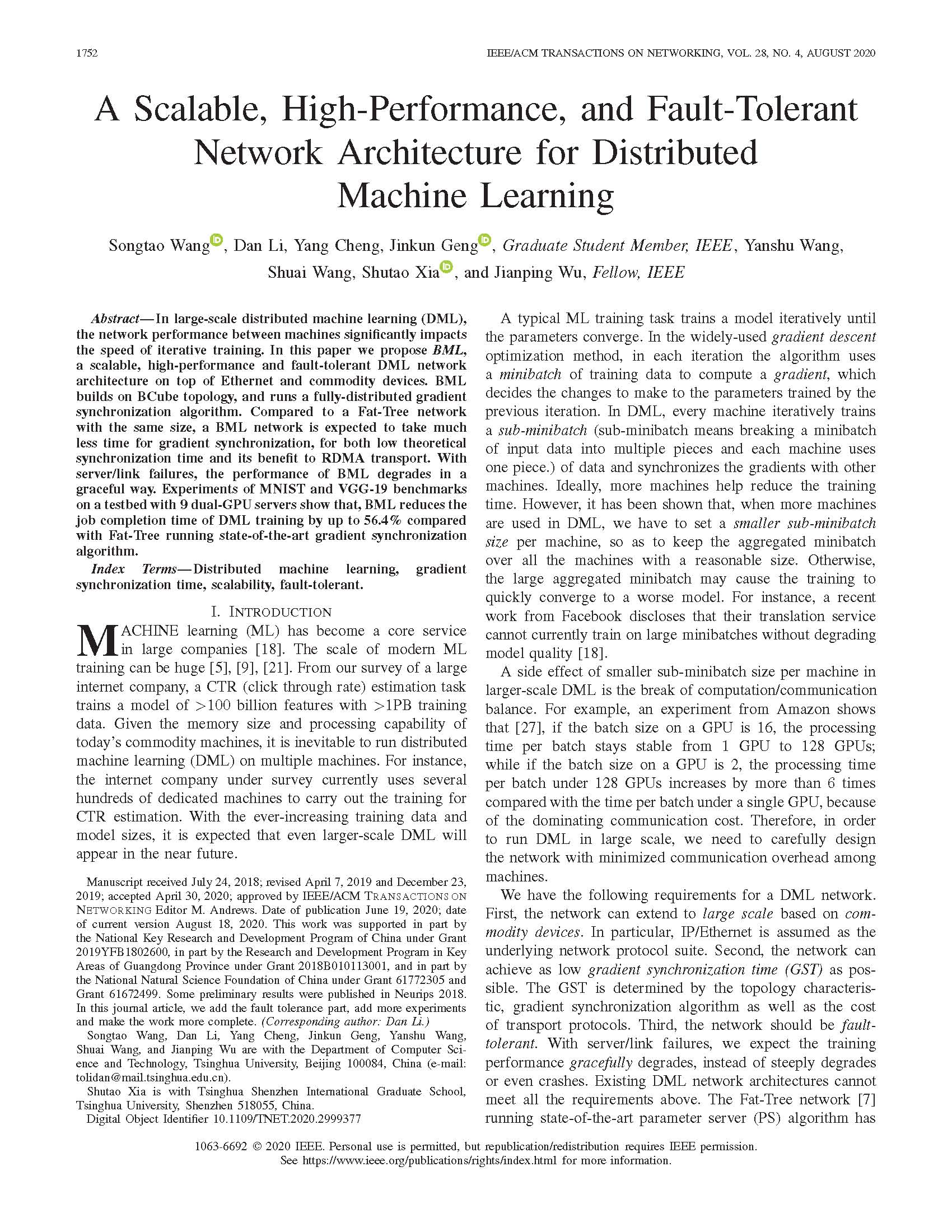A Scalable, High-Performance, and Fault-Tolerant Network Architecture for Distributed Machine Learning
Article Ecrit par: Cheng, Yang ; Li, Dan ; Wu, Jianping ; Wang, Shuai ; Geng, Jinkun ; Wang, Yanshu ; Xia, Shutao ; Wang, Songtao ;
Résumé: In large-scale distributed machine learning (DML), the network performance between machines significantly impacts the speed of iterative training. In this paper we propose BML , a scalable, high-performance and fault-tolerant DML network architecture on top of Ethernet and commodity devices. BML builds on BCube topology, and runs a fully-distributed gradient synchronization algorithm. Compared to a Fat-Tree network with the same size, a BML network is expected to take much less time for gradient synchronization, for both low theoretical synchronization time and its benefit to RDMA transport. With server/link failures, the performance of BML degrades in a graceful way. Experiments of MNIST and VGG-19 benchmarks on a testbed with 9 dual-GPU servers show that, BML reduces the job completion time of DML training by up to 56.4% compared with Fat-Tree running state-of-the-art gradient synchronization algorithm.
Langue:
Anglais
Thème
Informatique
Mots clés:
Scalability
Fault-tolerant software
Distributed machine learning
Gradient synchronization time

